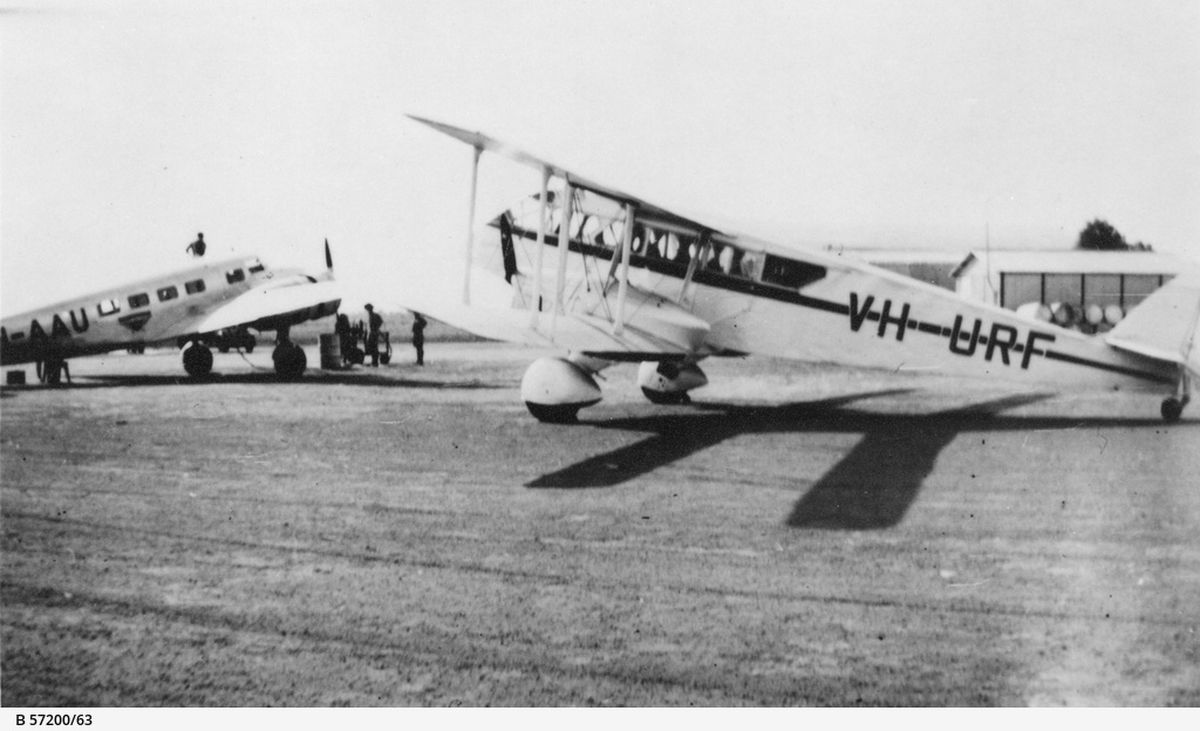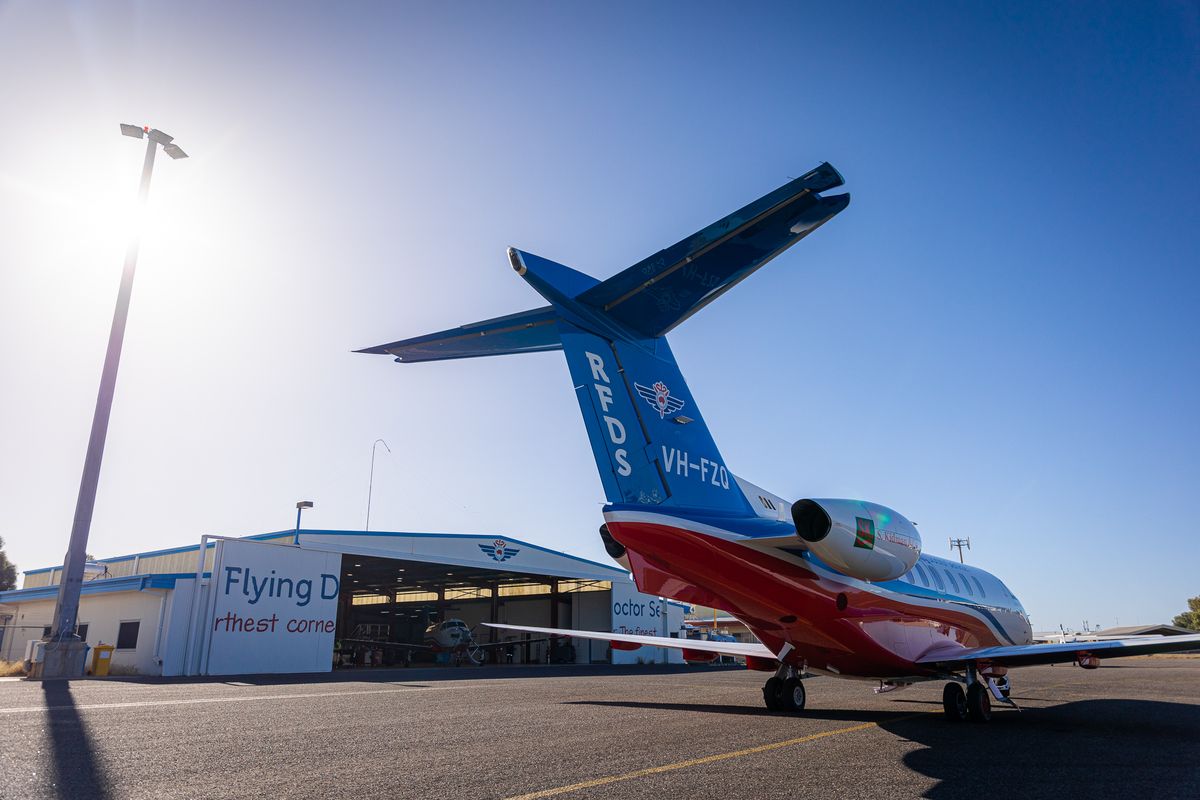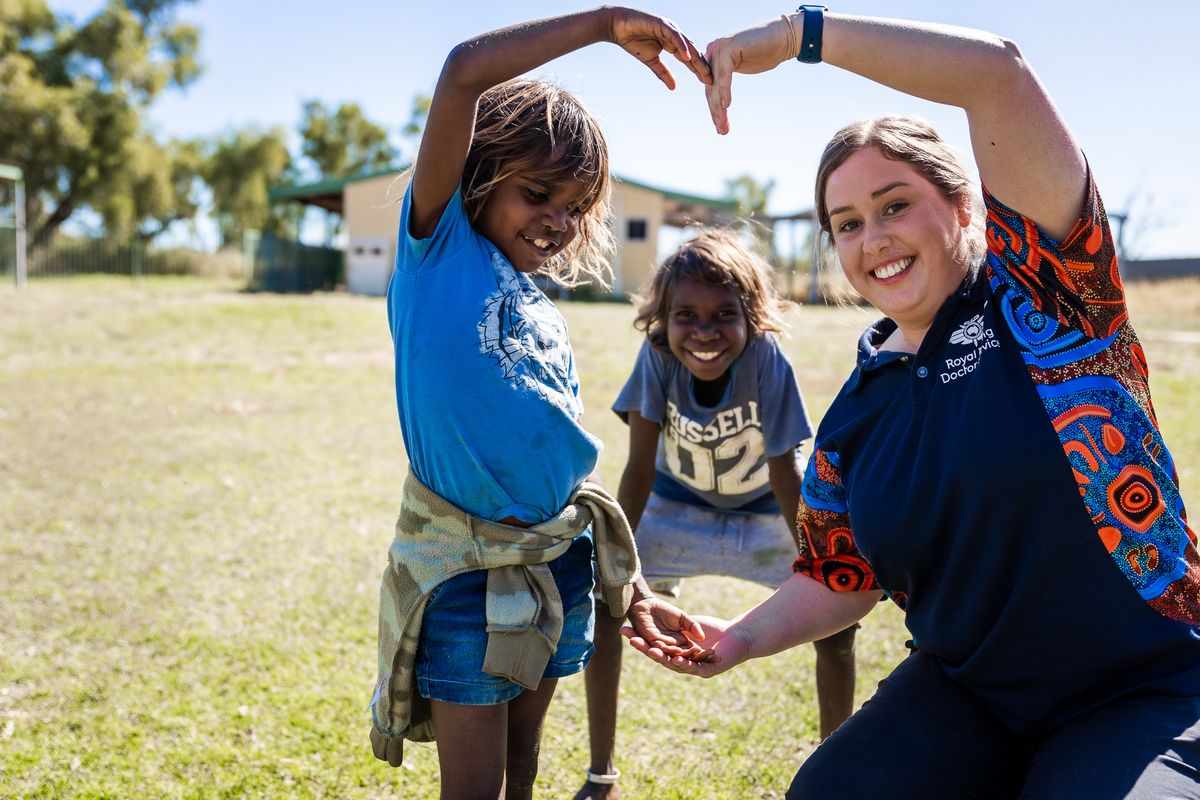
The RFDS formally marks 85 years in the Territory this week, reflecting on the historic opening of its Alice Springs Base.
On 1 August 1939, the original RFDS Alice Springs Base officially started local aeromedical operations.
The Flying Doctor already had five established aeromedical bases – one in Queensland, one in New South Wales and three in Western Australia – and a permanent post in Alice Springs meant the nation’s inland could now be covered by critical telegraph communication.
“We’ve proudly called the Territory home for 85 years, and it’s truly remarkable to consider how much the Royal Flying Doctor Service has grown in that time,” RFDS SA/NT Chief Executive Tony Vaughan ASM said.
“Back in 1939, our original Base had one plane, one pilot, one doctor, one ground engineer and one radio operator.
“Within a decade, the Flying Doctor was undertaking around 100 flights a year out of Alice and responding to more than 400 requests for medical aid – everything from burns and breaks to life-threatening accidents and epidemics."

Today, the RFDS has more than 90 staff working at two bases in Alice Springs and Darwin, with the Territory’s first remote RFDS Patient Transfer Facility soon to open at Tennant Creek.
The RFDS airlifts more than 2,500 Territorians every year, and has 10 purpose-built Pilatus aircraft, ready to respond 24/7 – all 100 per cent locally serviced and maintained.

“Beyond our aeromedical services in Central Australia, we deliver oral health services to the some of the NT’s remotest communities, support the mental health and wellbeing of schoolkids and station workers, and partner with local clinicians so they too can access people who need medical assistance no matter where they live in the Territory,” Mr Vaughan said.
“We’re also delighted to welcome 80,000 visitors a year through the doors of our Tourist Facilities in Darwin and Alice Springs – and while our history is rich, it’s our future in the Territory that is the most exciting story to share.”
“While the Flying Doctor is there in an emergency, we are also there for whole-of-life care. RFDS research shows women living remotely are statistically likely to die 19 years earlier than a city counterpart – and for remote men, it’s almost 14 years.
“Those statistics are simply not good enough. Working with our health partners to deliver equal access to healthcare inspires us to build on our proud legacy.”


